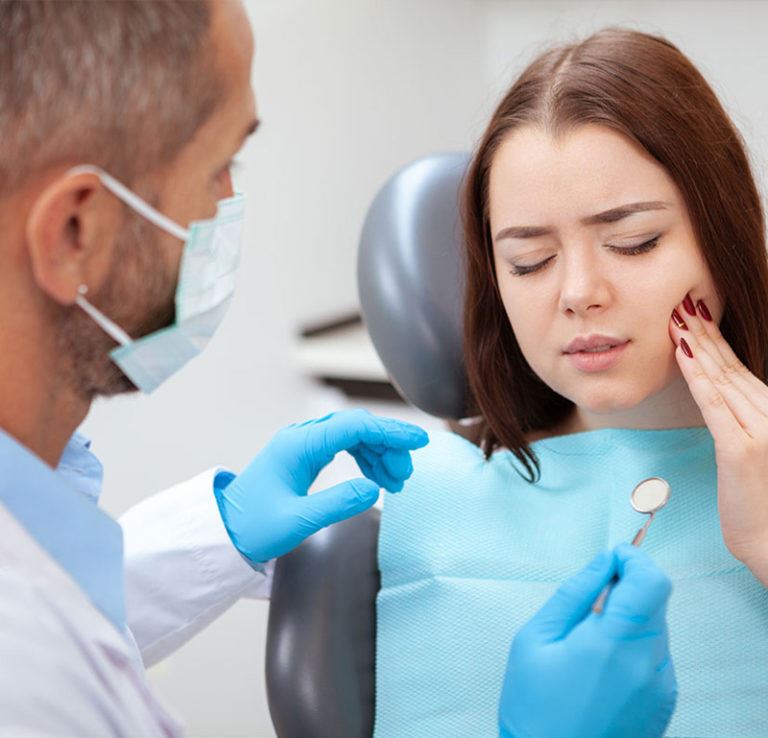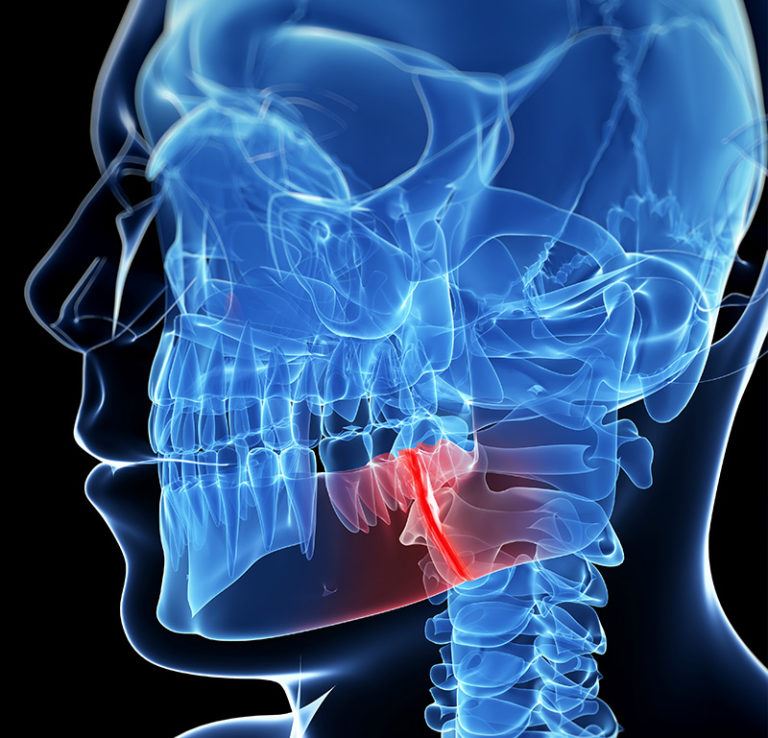
24/7 Emergency Dental Care in New York City
Get Immediate Help for Dental Emergencies
If you have suffered from an oral emergency or experienced severe or minor trauma to the mouth or tooth, the best thing to do is first remain calm. Understand that injuries to the mouth, teeth, and face happen frequently with both adults and children. We will help you assess whether or not the accident involved has affected your speaking or chewing abilities, and If consciousness was lost, even briefly, then you should contact a physician immediately. Broken fragments may have entered parts of the lip so if you notice any teeth are missing, you should look for them in case they can be utilized.
For more information about our New York City emergency dentistry, contact us online or call us at (332) 334-8290 today.
Recognizing Dental Emergencies: Signs and Symptoms

The most common dental emergency is a toothache. The signs and symptoms of a toothache include:
- Lingering sensitivity to cold
- Sensitivity to hot
- Spontaneous and constant throbbing pain
- Discomfort or pain when chewing or touching the tooth
- Swelling or tenderness around the area that hurt
- Fever
Handling Severe Toothaches and Dental Trauma

Prescribed or over-the-counter pain medication (dosed for children according to weight and age) may temporarily quiet the symptoms. In case the toothache is originating from the gums, rinse with warm salt water and floss the teeth to remove any food or substance that may be stuck between the teeth or in the gum pocket around the tooth. Antibiotics may become necessary; however, it is recommended that you contact your dentist to help make that determination.
Once seen by our dentist, an examination and x-rays will be performed to verify damage and to help determine the treatment. A comprehensive medical and dental history should also be taken.
Need Urgent Dental Care? Contact Marc Lazare D.D.S., M.A.G.D. Now
Having a tooth knocked out, biting your tongue hard enough to cause injury, or suffering another injury to the mouth can be extremely stressful. In some cases, you may not be sure if your situation is an actual emergency. The right course of action depends on the situation. While panic may be your initial response, we encourage you to remain as calm as possible and contact our office. We can provide the advice you need about home treatment or coming to the office.
Please contact us online today or at (332) 334-8290 to schedule an appointment for New York City emergency dentistry.

Frequent Dental Emergency Questions
-
What Does It Mean When a Tooth Turns Dark or Discolored?Discoloration or the darkening of a tooth usually results from a tooth that has been traumatized from an injury and caused damage to the nerve. This discoloration usually happens 2-3 weeks after the accident. If the tooth turns dark after an injury, it is because the blood supply got damaged. Baby teeth usually do get lighter over time (about 6 months on average), and if the tooth doesn’t bother him/her you can leave it alone. Usually the color change bothers the child’s parents more because of the esthetics. Adult teeth are handled differently. If an adult tooth changes color, that implies that the nerve inside is dying, and root canal therapy will be indicated. An adult tooth that shows no signs of color change after an accident may still turn color in the near or distant future. Your child’s dentist should keep monitoring the tooth for change and any signs of any infection. A pink tooth indicates either internal resorption (where the internal aspects of the tooth start to resorb), or the presence of blood pigments within the tooth. The pink tooth needs to be monitored closely.
-
What Should Be Done for a Laceration (Cut) Inside the Mouth?All lacerations (cuts) within the mouth must be cleaned well and checked for any foreign bodies. A tongue laceration usually requires stitches if the edges of the tissue does not line up cleanly. Any tears to the frenum (muscle attachments) will usually heal well, without any long-term complications. Use icepack to minimize swelling, and give the appropriate pain medication if necessary.
-
What Should I Do if My Child’s Tooth Get Displaced Outward, Inward or to the Side (Luxation), Pushed Up (Intruded) Or Pushed DowAfter assessing the injury, making sure your child is conscious and breathing well, contact your child’s dentist for immediate evaluation. For toddlers, the most common type of tooth displacement is a luxation, because the bone around the baby teeth is very soft, and teeth can move more easily within the socket. When this happens, there is usually a lot of bleeding from the surrounding gums. During a fall, a child’s tooth is usually pushed inward, towards the palate. This is less damaging to the developing tooth bud because as the crown portion of the tooth moves inward, the roots are pushed away from the developing tooth. The most damaging type of displacement is intrusion (when the tooth is pushed upward), because the root of the baby tooth can be forced into the developing tooth bud, causing possible developmental issues and color changes with the developing adult tooth. If the baby tooth is pushed up less than 3mm, it has an excellent prognosis and chance of re-erupting on its own. Allow the baby tooth to spontaneously erupt over a 2 to 3 month period – as long as the developing adult tooth bud is not injured. If re-eruption does not begin within 2 months, the baby tooth will need to be removed. If the baby tooth is pushed up more than 6mm, the tooth is hopeless. If the baby tooth is displaced into the developing adult tooth, it should be extracted to prevent further damage to the adult tooth bud. It is very important to take an x-ray to see if the tooth is present, because a severely intruded tooth may be pushed all the way inside and appear to have been knocked out. If an adult tooth gets displaced, gently try to reposition the tooth back into the right place if possible and hold the tooth in place and seek immediate dental care. If a tooth gets displaced less than 5mm, there is a 50% chance that the nerve won’t be damaged. These teeth may reposition themselves, but may also require orthodontic repositioning. It is possible that there could be a fracture of the bone surrounding the tooth during these luxations. If the tooth is very loose, and can be moved more than 2mm, a flexible wire and composite splint may be placed for 7-10 days to help stabilize it.
-
What Causes a Toothache?A toothache occurs when the nerve within the tooth gets damaged or inflamed. This is usually caused by bacteria from tooth decay communicating with the nerve of the tooth. Cavities (tooth decay) are usually brought about by a combination of poor oral hygiene coupled with eating a lot of sticky, sugary and starchy foods. This bacteria feeds on the sugars and starch left over from poor brushing and flossing. As a result acids are produced that will slowly eat away at the good tooth structure until the nerve becomes damaged, causing the toothache. Another way the nerve can get damaged is from dental trauma (i.e. sports injury, rough play or fights, severe teeth grinding, or extensive dental work on hypersensitive teeth).
-
What Should You Do When a Tooth Fractures or Gets Chipped?If a tooth sustains a fracture or chip from a traumatic accident, you should contact your dentist immediately for an x-ray and evaluation. Keep the mouth clean and if there was any trauma to the lip you should apply cold compresses to reduce swelling. If you can’t find any broken tooth fragment, check the lips to make sure the fragment didn’t get imbedded in that area. Simple chips can be smoothed or repaired with tooth colored bonding. A more serious fracture may require root canal therapy (if the nerve is involved) or extraction (if the fracture happens along certain areas of the root surface. Moderate fractures may be bonded for now, and later restored with crowns, veneers or onlays. For children you should try to hold off on these more advanced restorations until your child has completed their growth.
-
What Should I Do if My Child’s Adult Tooth Gets Knocked Out (Dental Avulsion of Secondary Tooth)?The first thing you should do is try to find the tooth and put it in a cup or baggie with either your own saliva, milk or saline (to keep it hydrated) and bring it immediately to your dentist (Do Not Touch the root of the tooth, handle it by its crown). Time is of the essence. With each minute that passes the chance of reattachment becomes less and less. DO NOT SCRUB the tooth. If you do it will wipe away its outer ligament and prevent its reattachment within your empty tooth socket. If you are in a place where dental care is not accessible, then gently rinse in cool water (no scrubbing or using soap) only if there is dirt on it (otherwise leave it alone), and slowly replace the tooth within the socket immediately and hold it there with gauze. Remember, the faster you act, the better your chances of saving the tooth. Almost all replanted teeth will show some signs of root resorption and ankylosis (where the root fuses with the surrounding bone). It is possible that this may affect one’s bite later on.
-
What Should I Do if My Child’s Baby Tooth Gets Knocked Out (Dental Avulsion of Primary Tooth)?The first thing you should do is contact your child’s dentist as soon as possible. The baby tooth should not be replanted because it may cause subsequent damage to the developing permanent tooth. Usually this type of injury happens between 7-9 years of age, when the bone surrounding the tooth is softer and more resilient. This means there is less of a chance of a bone fracture around the tooth. Your dentist should then see your child to check and verify that everything else is fine.
-
Dr. Lazare is the best! His office staff is kind and professional and his work is flawless. He provides great care and information on general dentistry as well as recommendations for cosmetic dentistry if you are interested.
- Erin

to Get Started? Call Us at 332-334-8290 or Schedule Your Next Visit
-
Monday: 8am - 5pm
-
Tuesday: 8am - 5pm
-
Wednesday: 10am - 7pm
-
Thursday: 8am - 5pm
-
Friday: 8am - 5pm
-
Saturday: 9am - 6pm
-
Sunday: Closed

